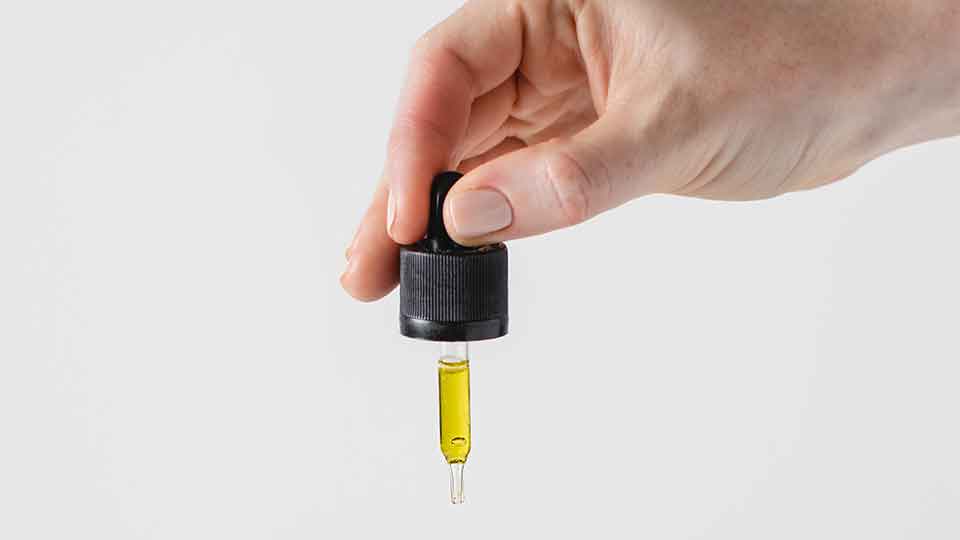If you’re reading this, your cat probably suffers from anxiety or pain.
Maybe your cat gets stressed when you leave the house or take them for a car ride. They get nervous when there are new people or pets around or moving into a new house. Or maybe your cat has a history of trauma or abuse, or a medical condition that makes them more irritable and nervous.
Whatever the case, you want your cat to be happy and healthy, and you’re looking for a natural and effective way to help them cope with their anxiety.
Some cat owners turned to CBD, hoping to use CBD to solve their cats’ anxiety problems. But does it work?
The short answer is yes. CBD works by affecting the endocannabinoid system, which controls many bodily functions. But cat CBD is not a miracle cure, and it may not work for every cat and every situation.
Besides, CBD may cause some cats to become sleepy or less active, especially if they take a high dose or are sensitive to CBD.
It’s better to know about how CBD works and how your cat can benefit from CBD before you use it.
Key Takeaways
- CBD cat treats are a convenient and tasty way to give your cat CBD benefits.
- CBD products are legal in most states if they contain less than 0.3% THC.
- CBD treats have been shown to have various health benefits for cats, including reducing anxiety, relieving pain, and improving overall wellness.
How Do Cat CBD Treats Make Cats Calm?
CBD treats are snacks that contain CBD, which is a natural substance that comes from plants called cannabis.
CBD does not make cats high or intoxicated, as it has very low levels of THC(Tetrahydrocannabinol), which is the part of cannabis that causes the “high” feeling.
CBD treats can help cats feel calm and relaxed by interacting with their endocannabinoid system, a part of their body that controls various functions such as mood, pain, appetite, and memory.
The endocannabinoid system has two types of receptors: CB1 and CB2.
These receptors are like locks that can be opened by keys called endocannabinoids, which are natural compounds that are produced by the body.
CBD can also act as a key that can open these receptors, but it has a higher affinity for CB2 receptors, which are mainly found in the immune system and peripheral organs.
CBD can also influence the activity of other receptors, such as serotonin and opioid receptors, which are involved in mood and pain regulation.
By opening these receptors, CBD can potentially change the levels of endocannabinoids and neurotransmitters in the cat’s body.
Endocannabinoids are messengers that communicate between cells. Neurotransmitters are chemical substances that transmit signals between neurons.
CBD can either increase or decrease the production, release, or breakdown of these substances, depending on the situation and the type of receptor involved.
For example, CBD can increase the levels of anandamide, an endocannabinoid that binds to CB1 receptors and has anti-inflammatory and anti-anxiety effects.
Anandamide is often called the “bliss molecule”, as it contributes to a sense of well-being and happiness in cats.
CBD can also increase the levels of serotonin, which is a neurotransmitter that binds to serotonin receptors and has antidepressant and anti-nausea effects.
Serotonin is also known as the “happiness hormone”, as it regulates mood and social behavior in cats.
By influencing these compounds, CBD can have various therapeutic effects on cats, such as reducing inflammation and pain, alleviating anxiety and fear, improving mood and appetite, and helping with some epilepsy and seizures.
However, as I said before, CBD is not a magic cure and it may not work for every cat or every condition. CBD may also cause some side effects in some cats, such as drowsiness, dry mouth, low blood pressure, or changes in appetite.
Therefore, it is important to consult a veterinarian before giving CBD to your cat and start with a low dose.
Are Cat CBD Treats Legal?
Cat CBD treats are specifically formulated for cats and contain CBD oil as the main ingredient.
In the United States, CBD derived from hemp is legal at the federal level as long as it contains less than 0.3% THC.
However, some states have their own laws regarding CBD, so it’s essential to check your local regulations before purchasing cat CBD treats.
It’s also important to note that while CBD is generally considered safe for cats, it’s always a good idea to talk to your veterinarian before giving your cat any new supplements or medications.
Your vet can help you determine the appropriate dosage for your cat and ensure no potential interactions with any other medications your cat may be taking.
Are Cat CBD Treats Safe?
The safety and efficacy of CBD in pets are still subjects of ongoing research. Here are some points to consider:
1. Regulation: Unlike CBD products for humans, those intended for pets are less regulated. This means that the quality and concentration of CBD in pet products can vary widely between products and manufacturers.
2. Research: There is limited scientific research on the effects of CBD on cats. Some studies suggest potential benefits for conditions like anxiety, pain, and inflammation, but these are preliminary.
3. Veterinarian Guidance: It’s essential to consult with a veterinarian before giving CBD to your cat. A vet can provide advice based on your cat’s health history and current condition.
4. Dosage: If a veterinarian recommends CBD, they will also provide guidance on the appropriate dosage. Dosage can be particularly tricky with cats due to their size and metabolism.
5. THC Content: THC, the psychoactive compound found in cannabis, is toxic to cats even in small amounts. Ensure that any CBD product you consider is free from THC or contains less than 0.3% THC, which is generally considered safe.
6. Side Effects: CBD can cause side effects in cats, such as gastrointestinal upset or sedation. If you notice any adverse reactions in your cat after administering CBD, it’s important to discontinue use and consult your vet.
7. Quality of Product: Look for products that have been third-party tested and that provide a certificate of analysis (COA) that confirms the product’s contents.
In summary, while some pet owners have reported positive outcomes from using CBD for their cats, it is crucial to use high-quality products specifically designed for pets.
What Are The Benefits of Cat CBD Treats?
I have been researching the benefits of CBD for cats and have found that it can provide a range of positive effects.
Some of the benefits of cat CBD treats are:
Relieve pain and stiffness in cats with arthritis
Arthritis is a condition that causes inflammation and damage to the joints, making them painful and hard to move.
CBD can reduce inflammation and pain by interacting with the receptors that control these sensations.
Help with kidney disease and urinary incontinence
Kidney disease is a condition that affects the kidneys’ ability to filter waste and toxins from the blood, causing them to build up in the body.
Urinary incontinence is a condition that causes cats to lose control of their bladder, making them leak urine.
CBD can help improve kidney function and reduce bladder spasms by interacting with the receptors that regulate these organs.
Decrease the frequency and intensity of seizures
Seizures are sudden episodes of abnormal electrical activity in the brain, causing involuntary movements, loss of consciousness, or changes in behavior.
CBD can help reduce the seizures by interacting with the receptors that control the brain activity.
Reduce stress, anxiety, and hyperactivity
Stress, anxiety, and hyperactivity are conditions that affect the cat’s mental and emotional state, making them nervous, fearful, or restless.
CBD can help calm the cat’s mind and mood by interacting with the receptors that regulate these emotions.
Help in the treatment of certain types of feline cancer
Cancer is a condition that causes abnormal growth of cells in the body, forming tumors that can spread to other organs.
CBD can help slow down the growth and spread of cancer cells by interacting with the receptors that control cell division and death.
Cat CBD treats are a natural and effective way to support your cat’s health and well-being.
When choosing a CBD treat for your cat, it is essential to look for a high-quality product that is made with natural ingredients and has been tested for purity and potency.
How Much CBD Is OK for Cats?
When it comes to giving CBD to cats, it’s essential to follow the dosage instructions provided by the manufacturer.
The appropriate amount of CBD for a cat will depend on several factors, such as weight, age, and overall health.
Generally, it’s best to start with a low dose and gradually increase it until the desired effect is achieved.
It’s also important to monitor your cat for any side effects when giving them CBD.
While CBD is generally considered safe for cats, some cats may experience adverse reactions.
These side effects may include lethargy, diarrhea, vomiting, or changes in appetite.
If you notice any of these symptoms, it’s best to stop giving your cat CBD and consult with your veterinarian.
To help ensure that you’re giving your cat the appropriate amount of CBD and to monitor for any side effects, it’s a good idea to keep a journal.
Record the dosage you give your cat, any changes in behavior or symptoms, and how long it takes for the CBD to take effect.
This will help you determine the most effective dosage for your cat and identify any potential issues.
In summary, when giving CBD to cats, it’s important to follow the manufacturer’s dosage instructions, start with a low dose, monitor for any side effects, and keep a journal to track your cat’s response to the CBD.
How to Give CBD Treats to My Cat
Giving CBD treats to your cat is a simple process that can be done in a variety of ways.
Here are a few tips to help you give CBD treats to your cat:
Start with a low dose
Like any new supplement, start with a low dose and gradually increase it over time.
This will help your cat adjust to the new supplement and minimize the risk of any negative side effects.
Mix it with food
One of the easiest ways to give CBD treats to your cat is to mix it in with their food.
Simply break the treat into small pieces and mix it in with your cat’s wet or dry food.
This will mask the taste of the treat and make it easier for your cat to consume.
Give it as a treat
If your cat is a picky eater, you can try giving them the CBD treat on its own as a special treat.
Most cats love the taste of these treats, so it shouldn’t be too difficult to get them to eat them.
Use a dropper
If you’re using a liquid form of CBD, you can use a dropper to administer it directly into your cat’s mouth.
This is a more precise way to give your cat the correct dosage, but it can be a bit more difficult to do.
Consider the dosage
It’s important to consider the dosage when giving your cat CBD treats.
Generally, cats need between 1 and 5 mg of CBD per 10 pounds of body weight.
You should always start with a lower dose and gradually increase it over time to find the proper dosage for your cat.
Always consult your veterinarian before giving your cat any new supplement, including CBD treats.
They can help you determine the right dosage and ensure that it’s safe for your cat to consume.
How Long Does CBD Oil Take to Work for Anxiety in Cats?
Anxiety in cats is a common issue that can lead to destructive behavior, excessive meowing, and even health problems.
CBD oil has been touted as a natural remedy for anxiety in cats, but how long does it take to work?
The answer is that it varies.
CBD oil can take anywhere from 5 minutes to a few hours to start working, depending on the cat’s metabolism, weight, and the severity of their anxiety.
CBD oil can be administered to cats in various ways, including treats, tinctures, or capsules.
CBD treats are a popular option because they are easy to administer and can be a tasty reward for your cat.
However, it’s essential to choose high-quality treats specifically formulated for cats and contain a safe and effective dose of CBD.
When administering CBD oil to your cat, it’s important to monitor their behavior and adjust the dosage accordingly.
Some cats may require a higher dose to see the desired effect, while others may be more sensitive to CBD and require a lower dose.
In conclusion, CBD oil can be an effective natural remedy for anxiety in cats.
However, it’s important to start with a low dose and gradually increase it until you see the desired effect.
CBD treats are a popular and convenient option, but it’s important to choose high-quality treats that are specifically formulated for cats and contain a safe and effective dose of CBD.
Always monitor your cat’s behavior and adjust the dosage accordingly.
FAQ
Is It Safe to Give Cats CBD Everyday?
While CBD is generally considered safe for cats, it is important to understand the potential risks and benefits before incorporating it into your cat’s daily routine.
Some cats may experience mild side effects such as sedation, gastrointestinal upset, or changes in behavior. These side effects are typically mild and resolve when the CBD is discontinued or the dose is lowered.
It is also important to note that the long-term effects of CBD on cats are not yet fully understood.
While there is some evidence to suggest that CBD may have potential health benefits for cats, more research is needed to fully understand its effects on feline health.
If you are considering giving your cat CBD treats on a daily basis, talk to your veterinarian first. Your vet can help you determine the appropriate dose for your cat’s needs and monitor for any potential side effects.
In addition, it is important to only use high-quality CBD products that are specifically formulated for cats.
Look for products that have been third-party tested for purity and potency, and avoid products that contain any additives or contaminants.
Overall, while CBD may have potential health benefits for cats, it is important to approach its use with caution and to always consult with your veterinarian before incorporating it into your cat’s daily routine.







